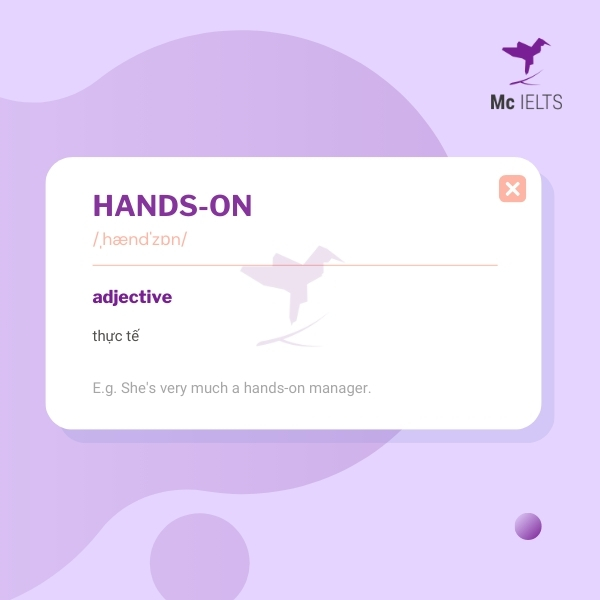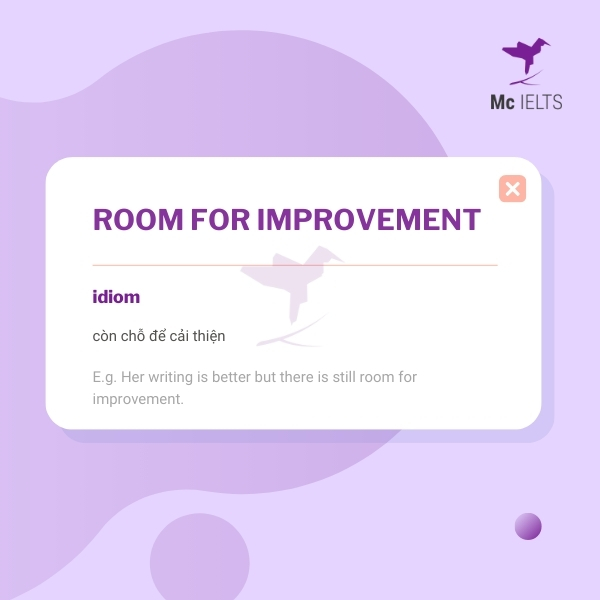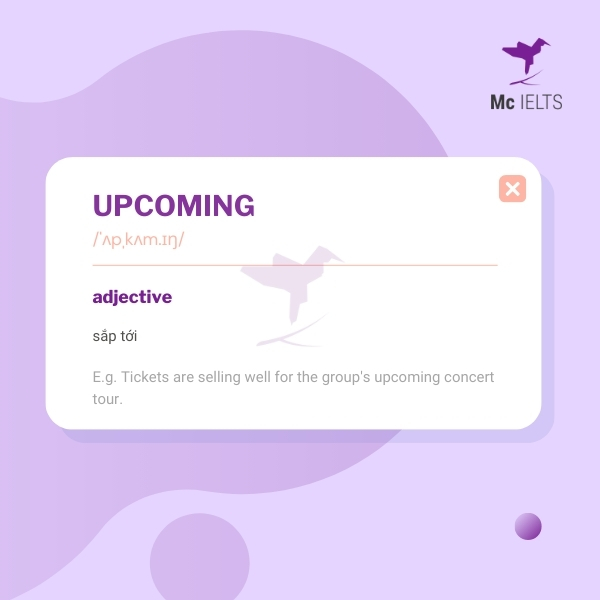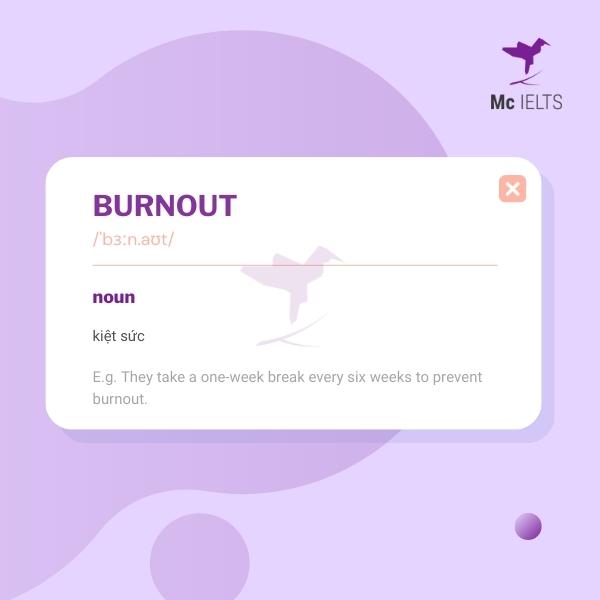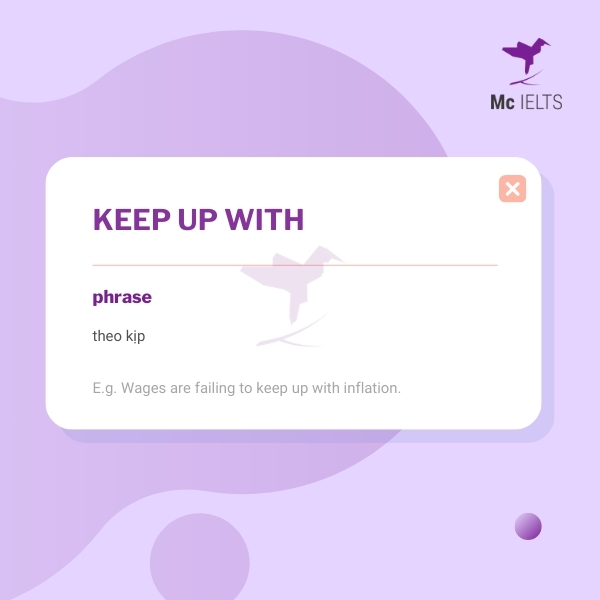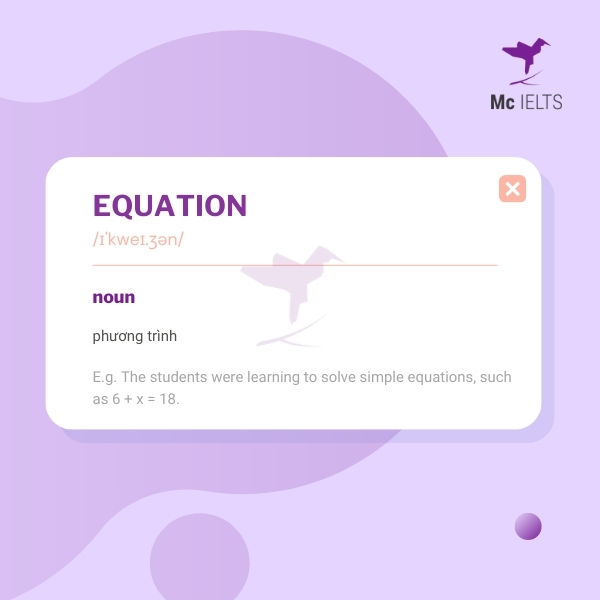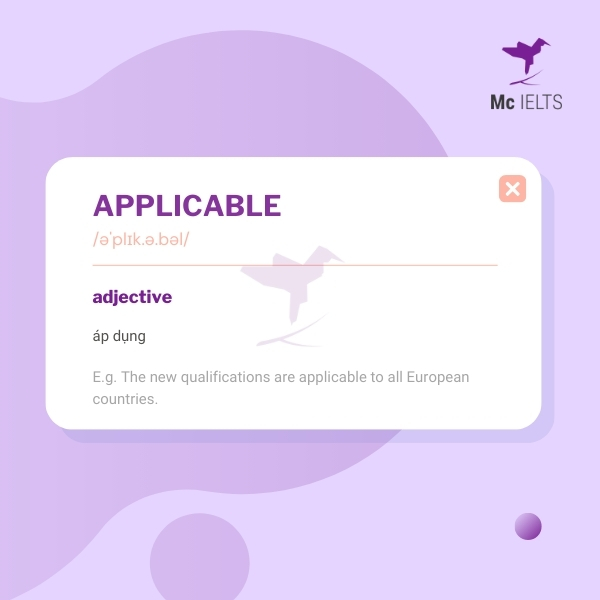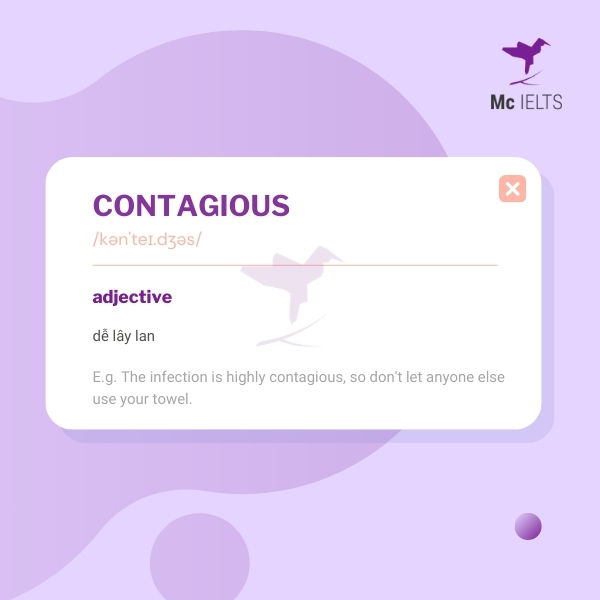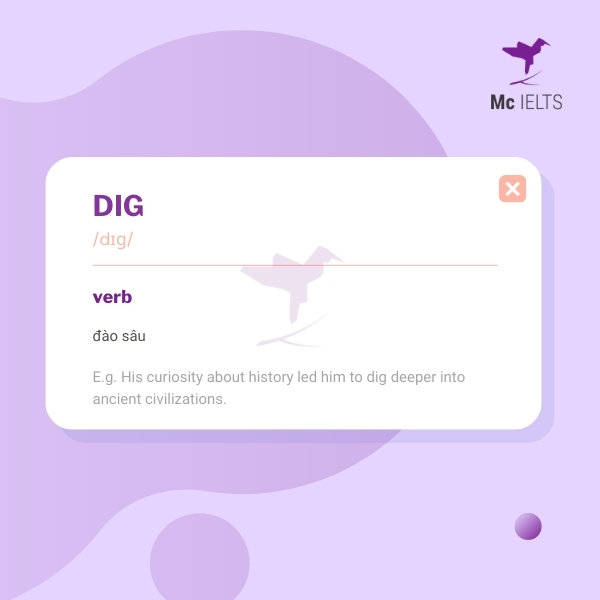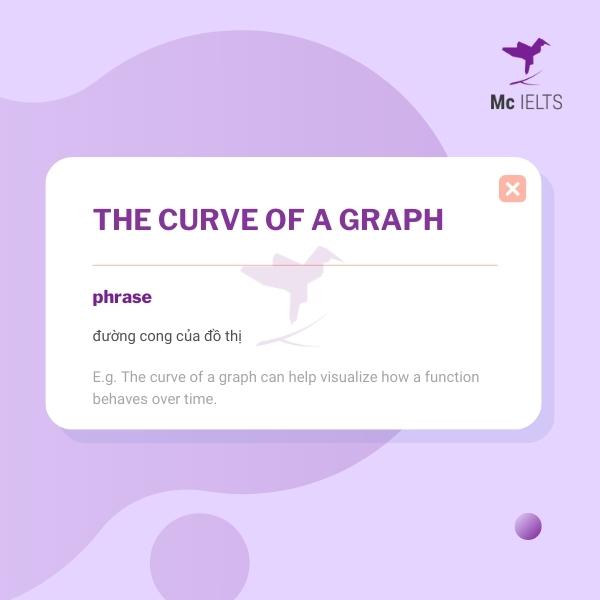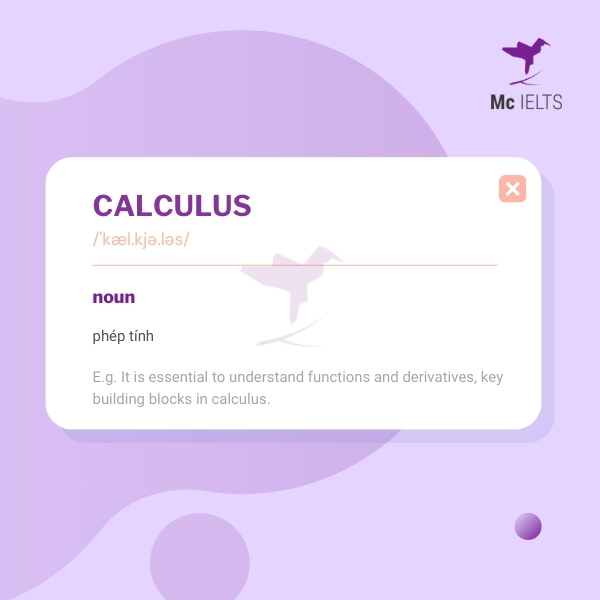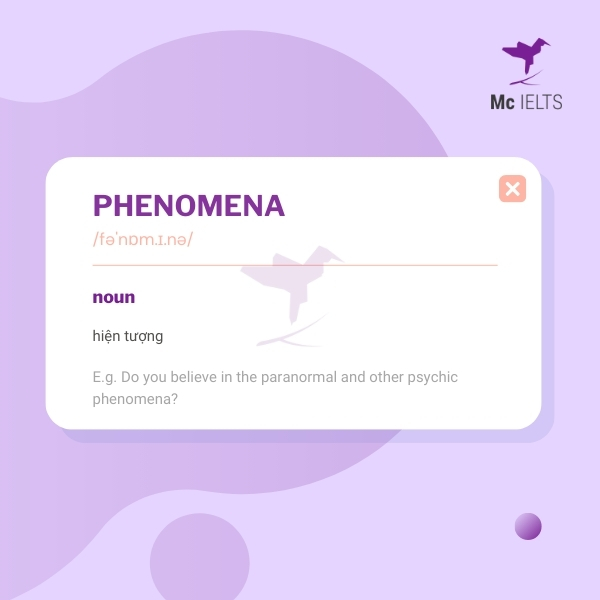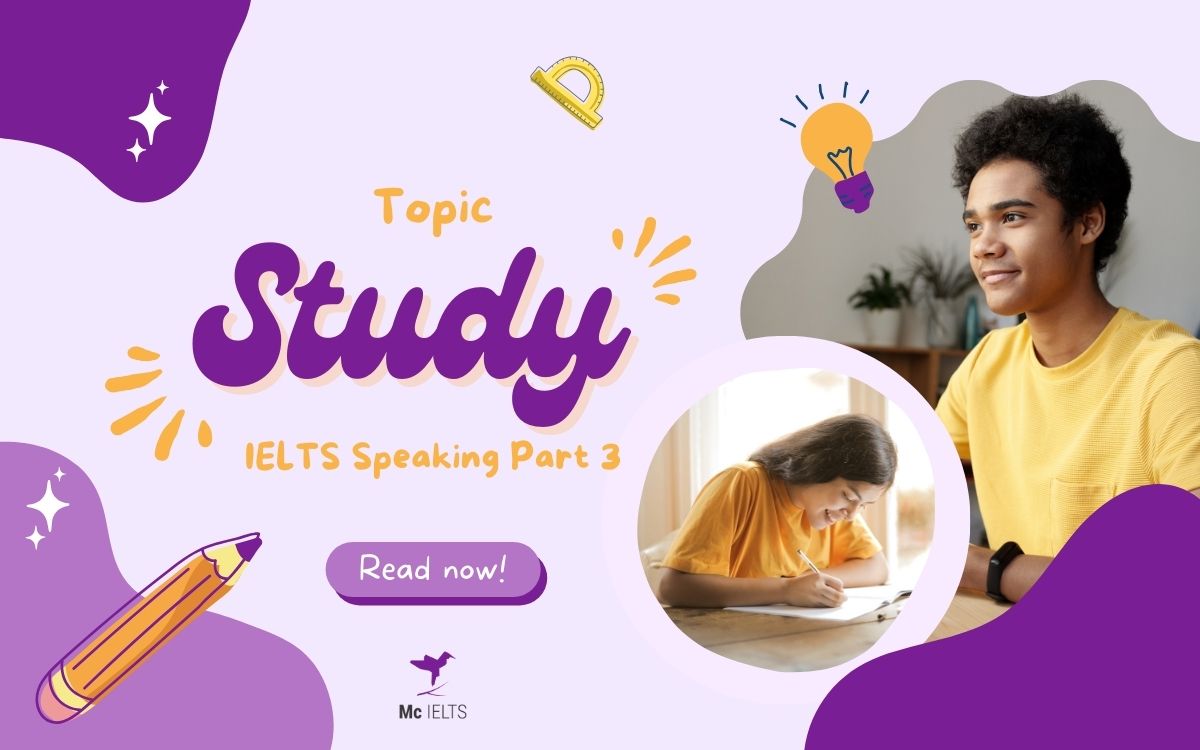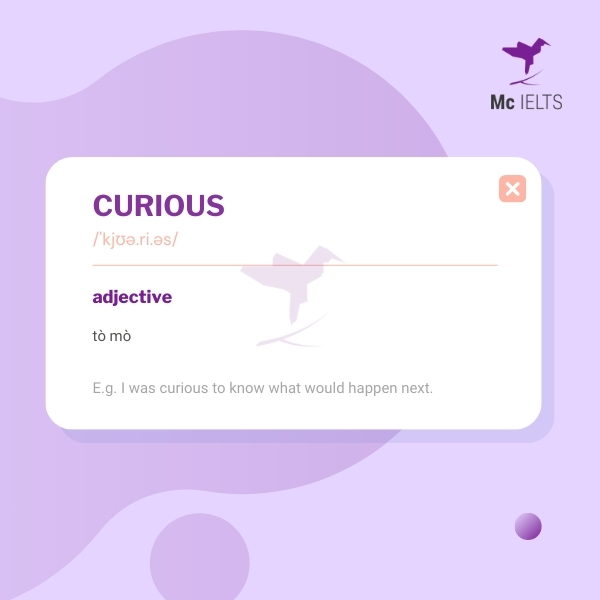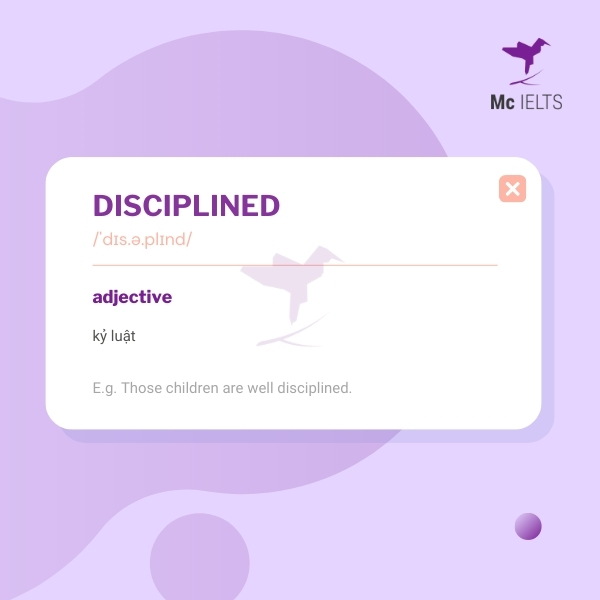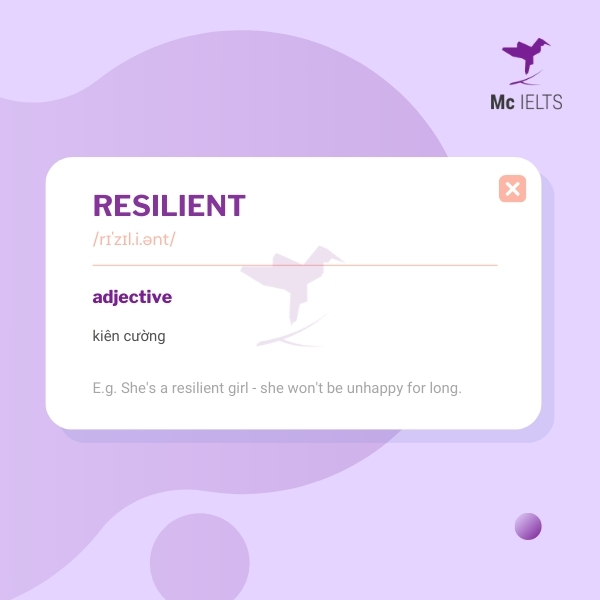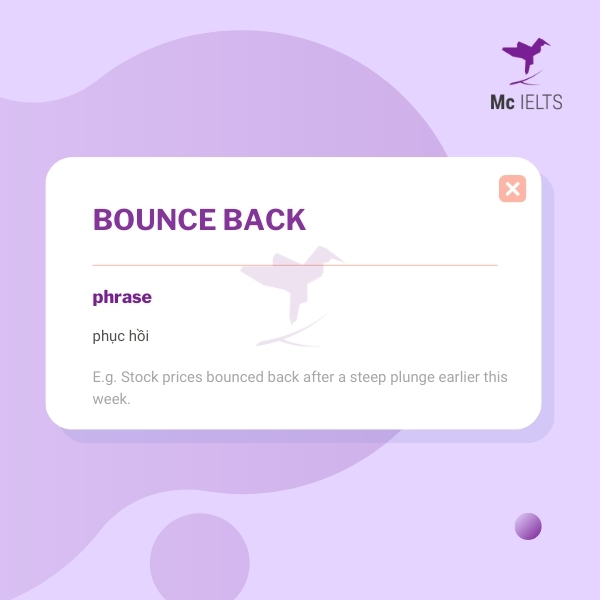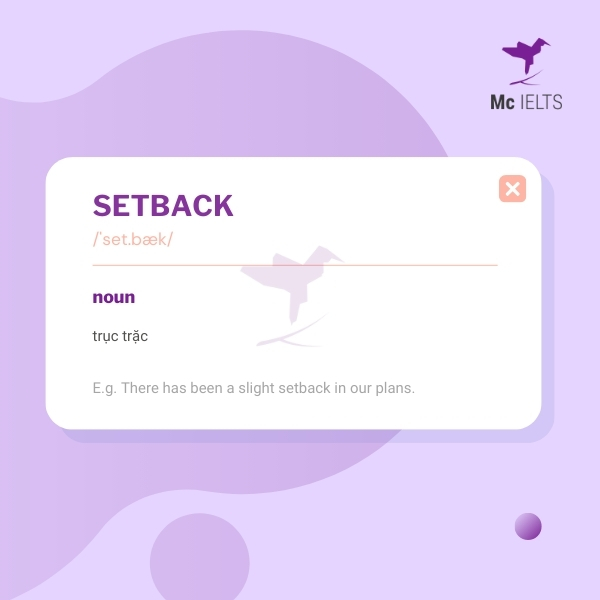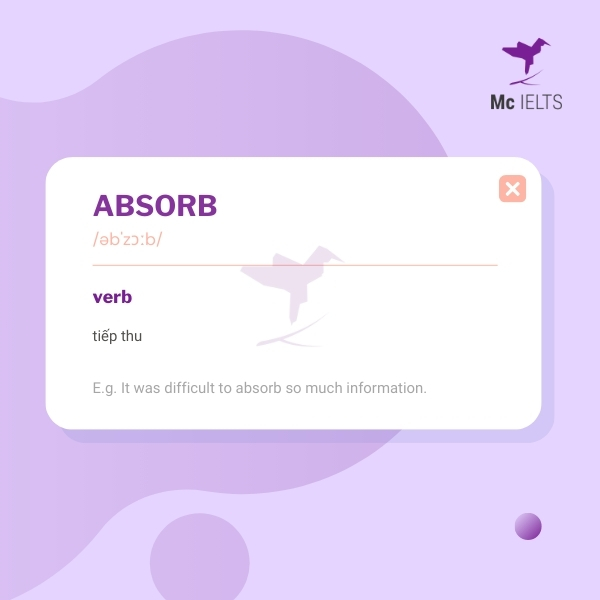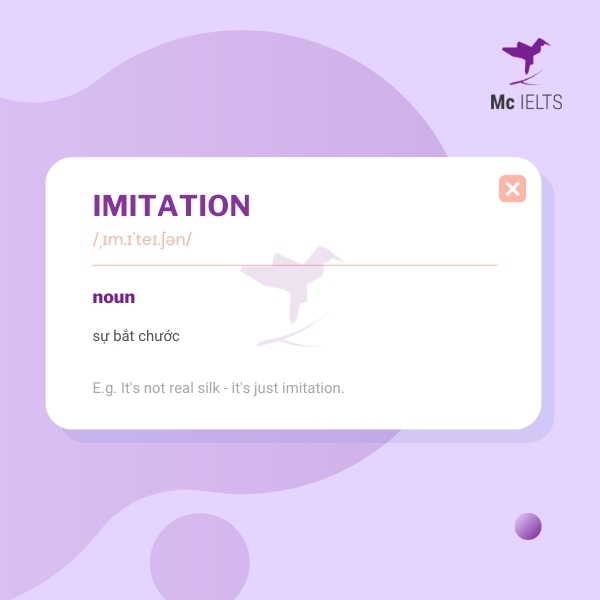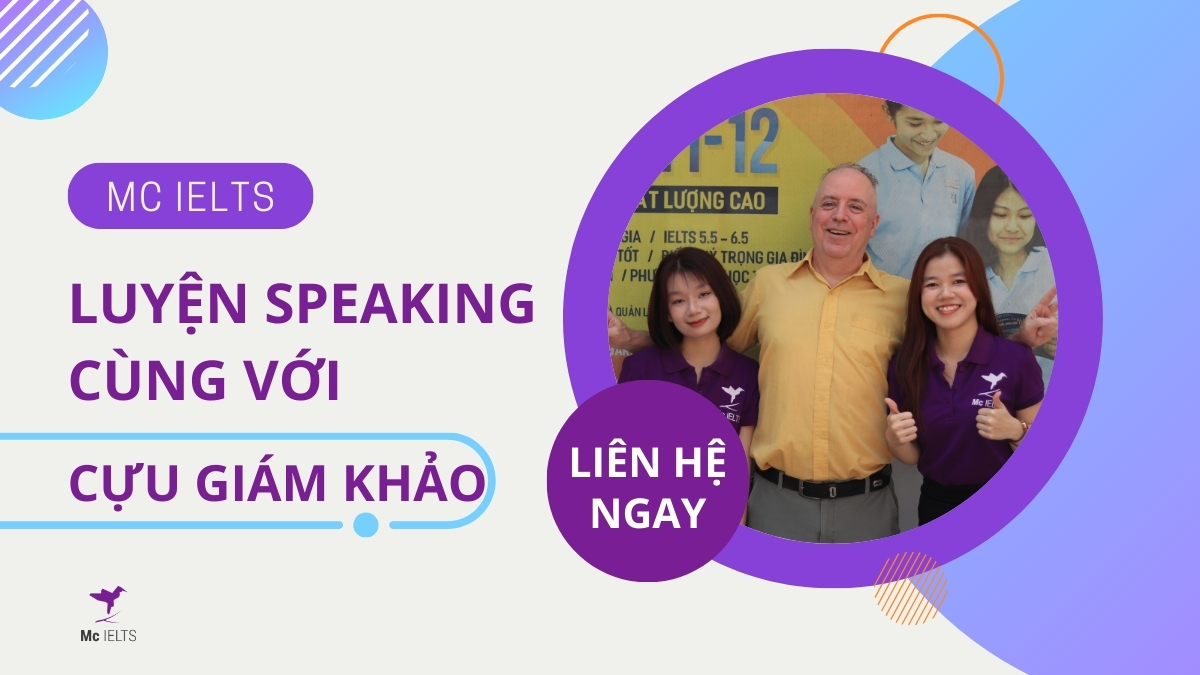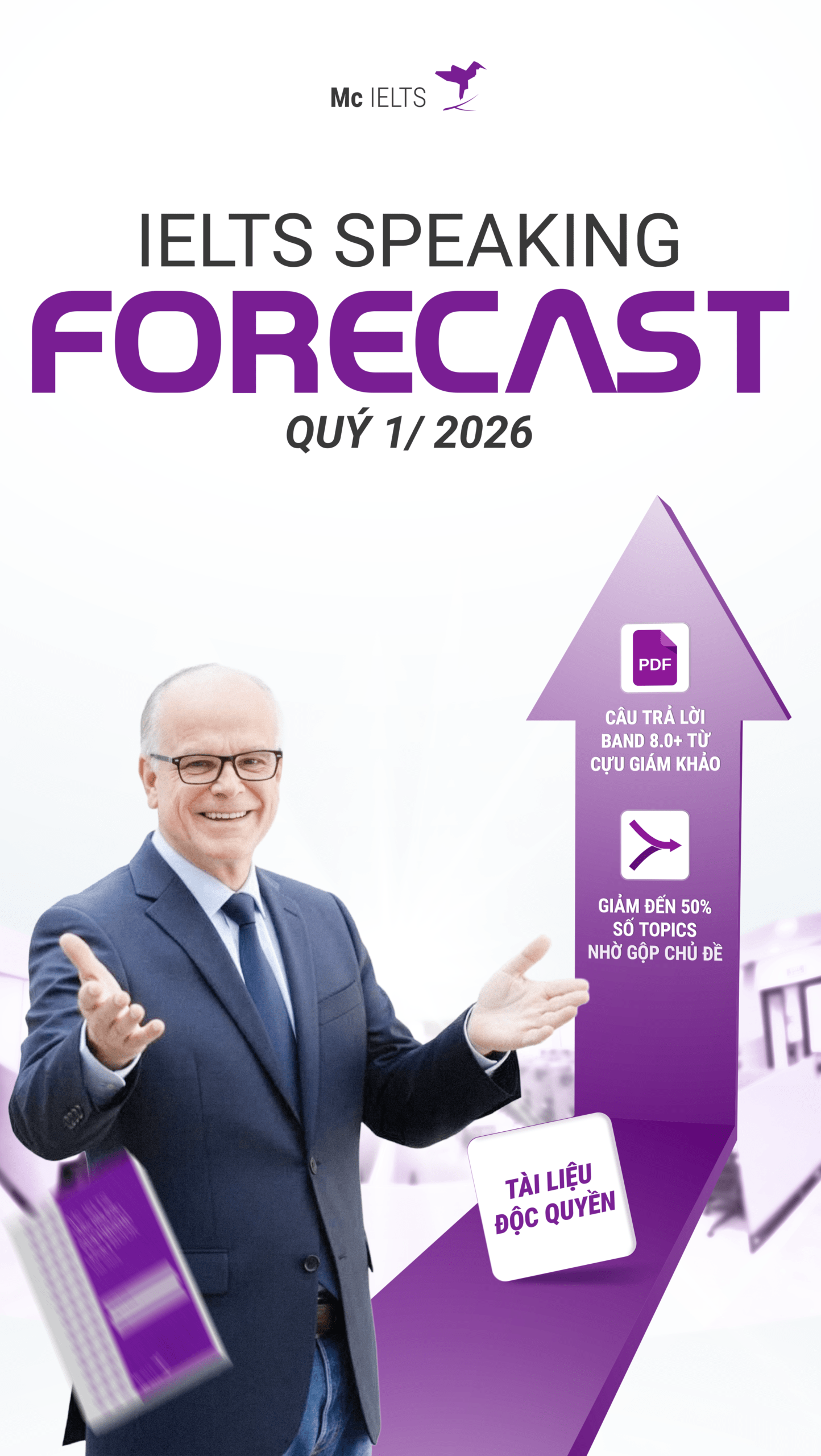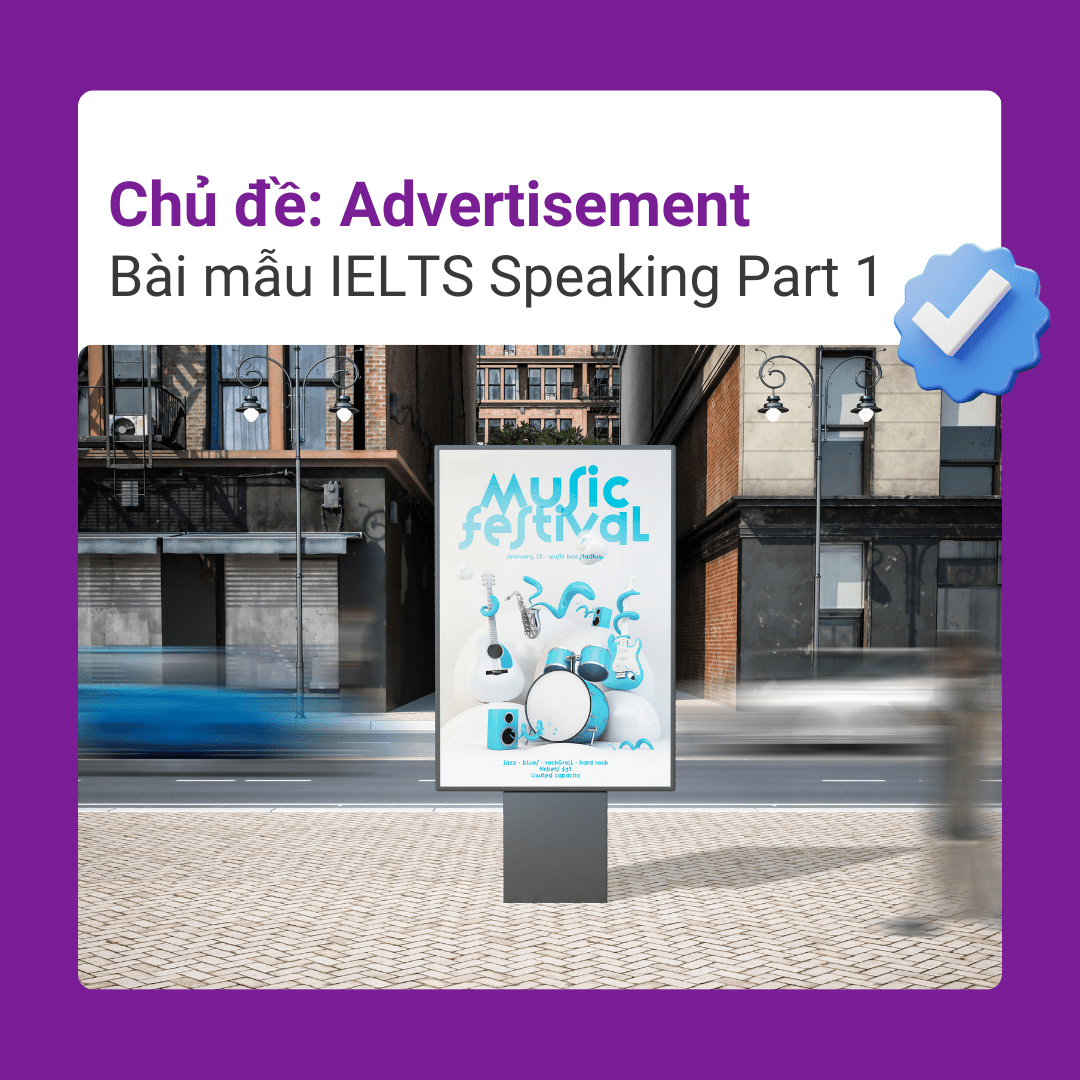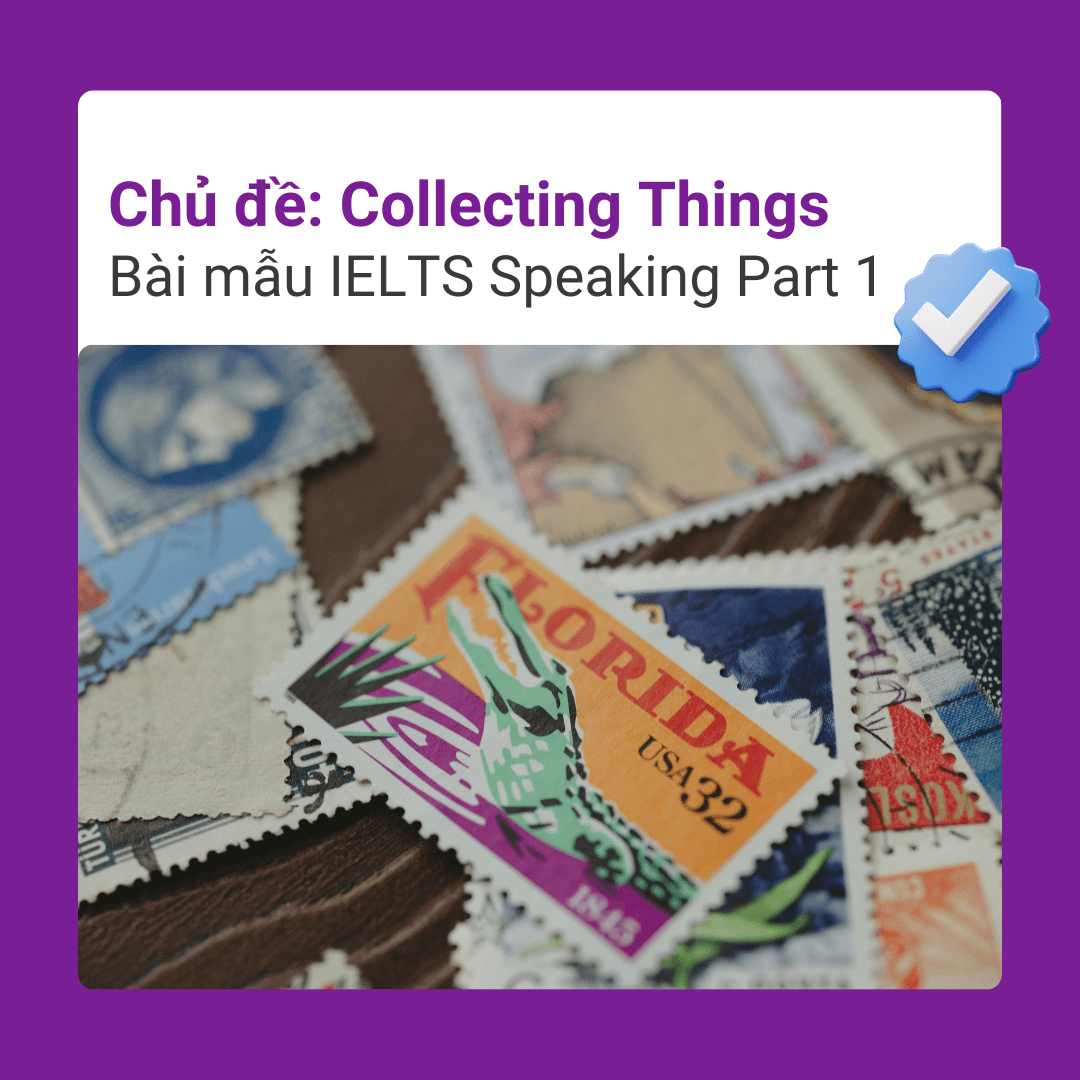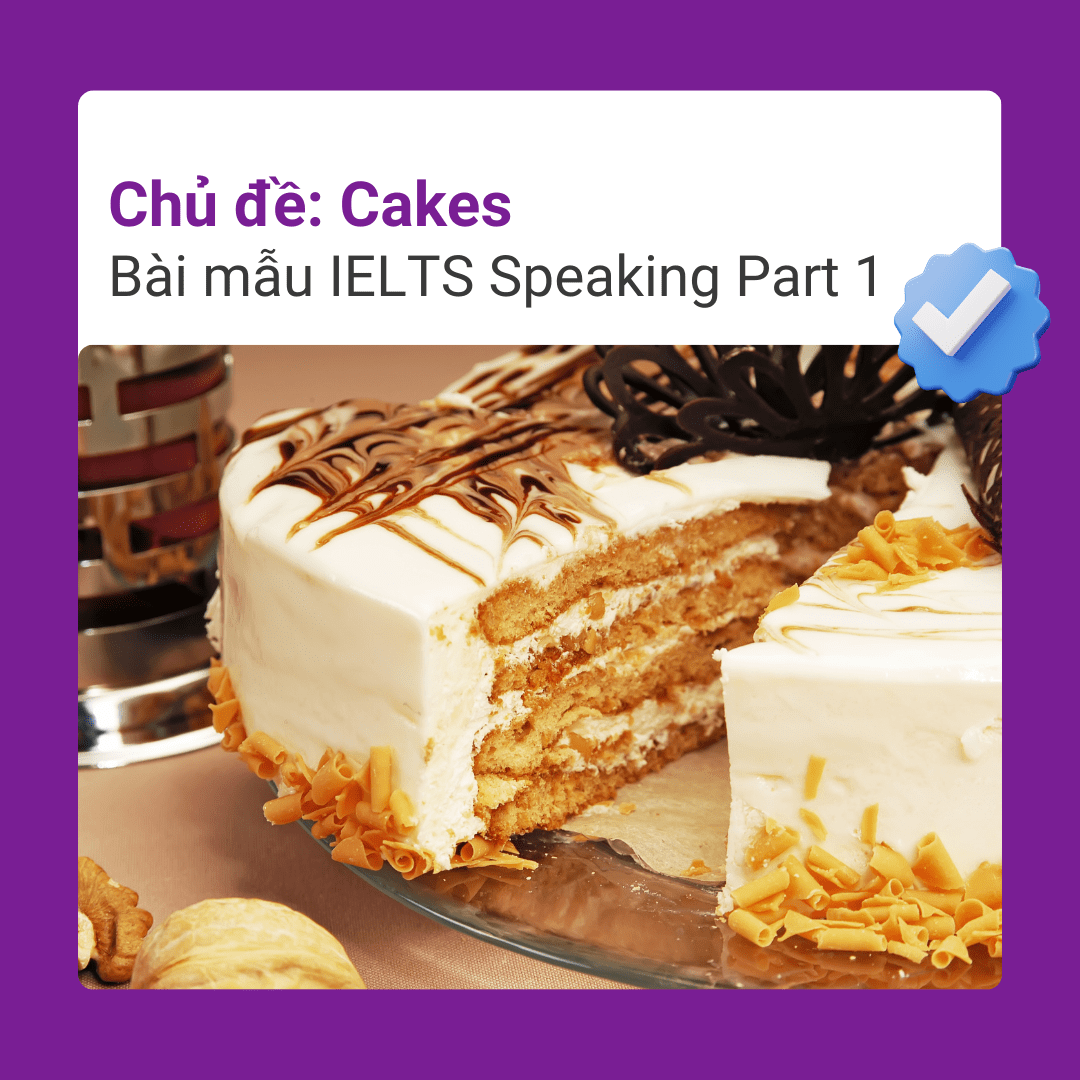Tất tần tật về IELTS Speaking chủ đề Study Part 1, 2, 3
 29/09/2024
29/09/2024
 Tác giả : Mc IELTS
Tác giả : Mc IELTS
Bạn đã bao giờ tự hỏi làm sao để nói về chủ đề Speaking Part 1 Study một cách tự nhiên và ấn tượng chưa? Liệu bạn có đang lo lắng về cách diễn đạt quá trình học tập của mình hay thảo luận về giáo dục một cách mạch lạc? Bài viết này của Mc IELTS sẽ mang đến cho bạn những bài mẫu chất lượng và từ vựng cần thiết để không chỉ trả lời trôi chảy mà còn ghi điểm cao với giám khảo. Hãy cùng khám phá và chuẩn bị sẵn sàng để chinh phục chủ đề Study trong kỳ thi IELTS nhé!
| Key takeaway |
Câu hỏi IELTS Speaking Part 1 Study:
Câu hỏi IELTS Speaking about Study Part 2:
Câu hỏi IELTS Speaking Topic Study Part 3:
Những từ vựng và cấu trúc thông dụng trong topic IELTS Speaking about Study. |
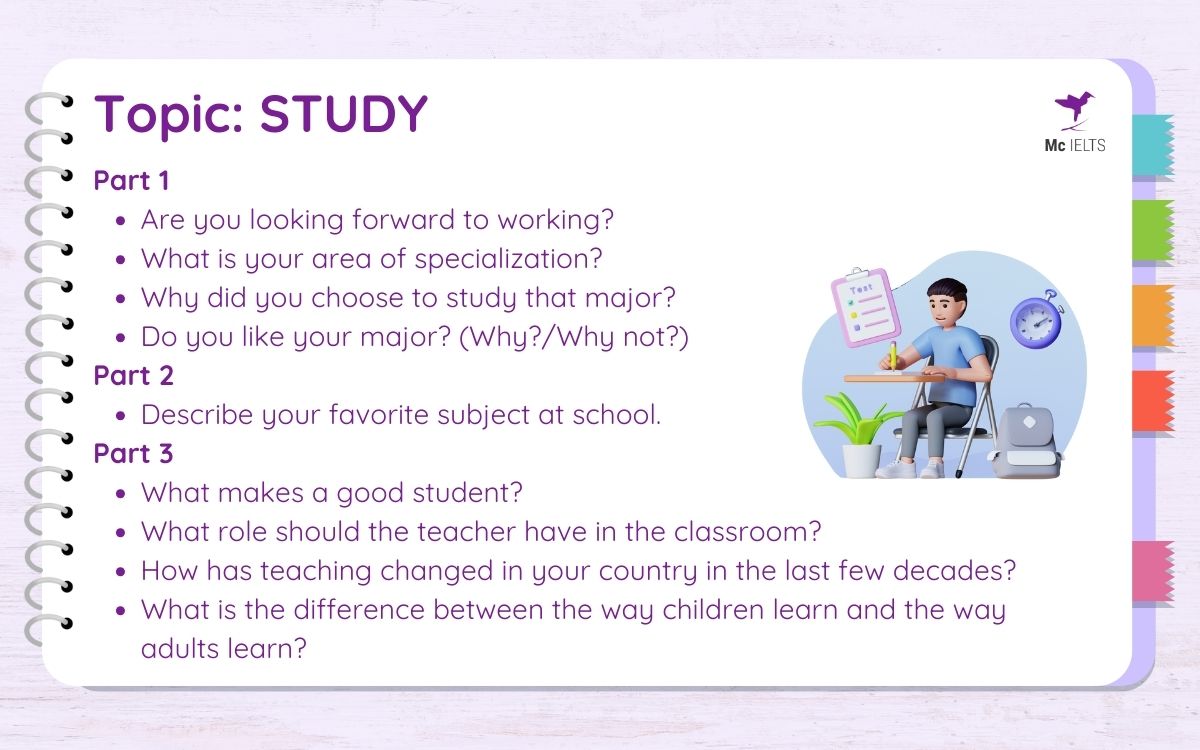
Một số câu hỏi chủ đề Study IELTS Speaking Part 1, 2, 3
Ý tưởng trả lời Speaking Part 1 Study
Bạn có bao giờ băn khoăn làm sao để trả lời chủ đề Study Speaking Part 1 một cách ấn tượng? Làm thế nào để biến những câu hỏi về việc học trở thành cơ hội ghi điểm với giám khảo? Nếu bạn đang tìm kiếm những ý tưởng độc đáo và cách diễn đạt tự nhiên, thì đây chính là điều bạn cần. Hãy cùng khám phá và áp dụng những cách trả lời thông minh vào quá trình luyện Speaking IELTS để giúp bạn tự tin và nổi bật trong phần thi này nhé!
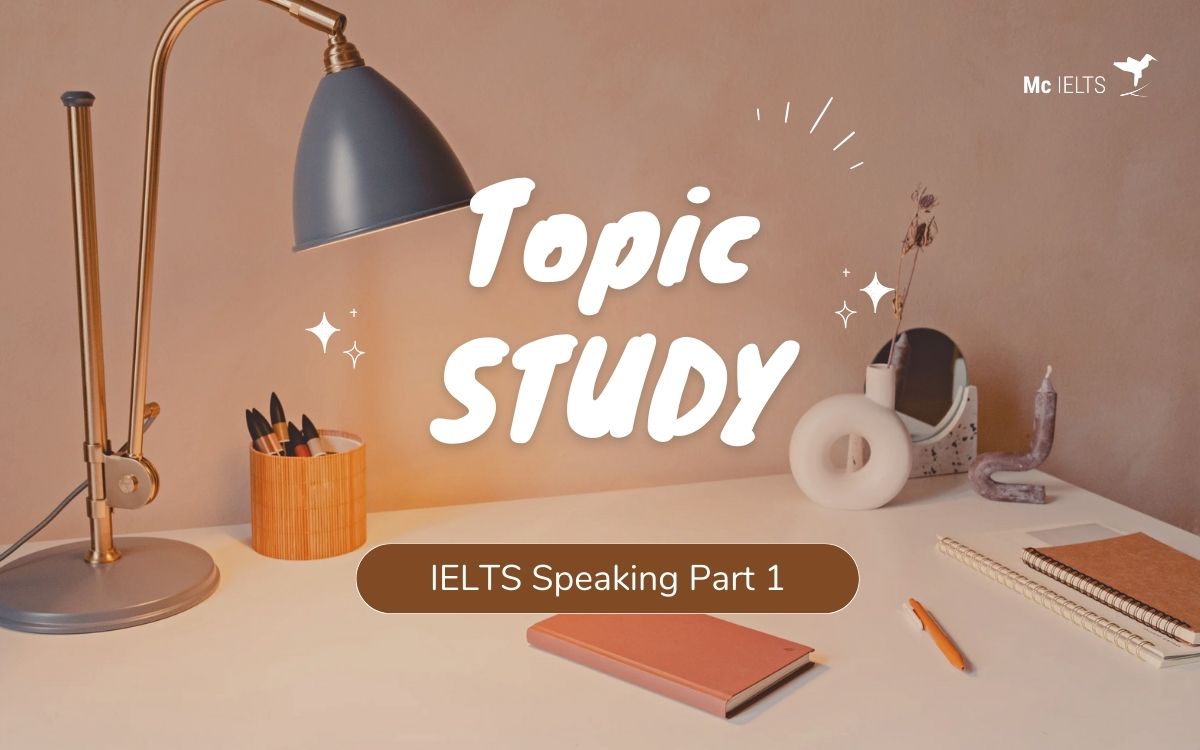
Bài mẫu chủ đề IELTS Speaking Part 1 Study
Are you looking forward to working?
Absolutely! I’m really excited about diving into my career and applying what I’ve learned. The idea of tackling real-world challenges and contributing to meaningful projects is really motivating. While studying has been rewarding, I’m eager to move on to the next chapter and see how I can make an impact in my field. Plus, working will offer new experiences and growth opportunities that I’m looking forward to.
Từ vựng:
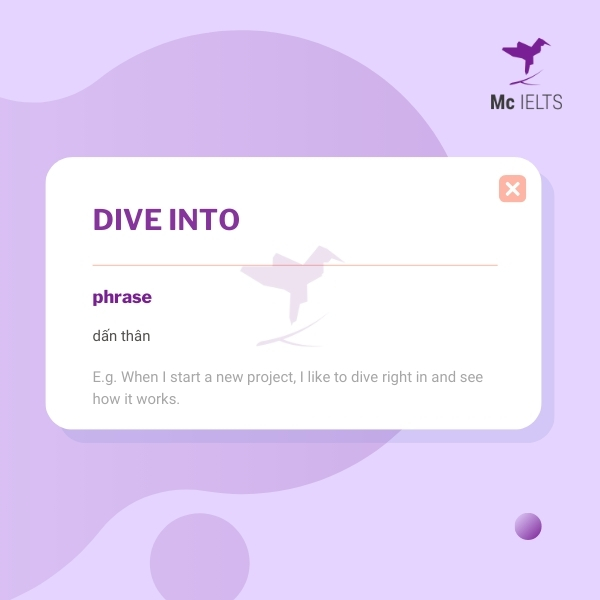
What is your area of specialization?
My area of specialization is data science. I focus on analyzing large data sets, building models, and extracting insights to help make data-driven decisions. I chose this field because it’s at the intersection of technology, statistics, and problem-solving, all of which I’m passionate about. It’s a rapidly evolving field with a lot of potential for innovation.
Từ vựng:
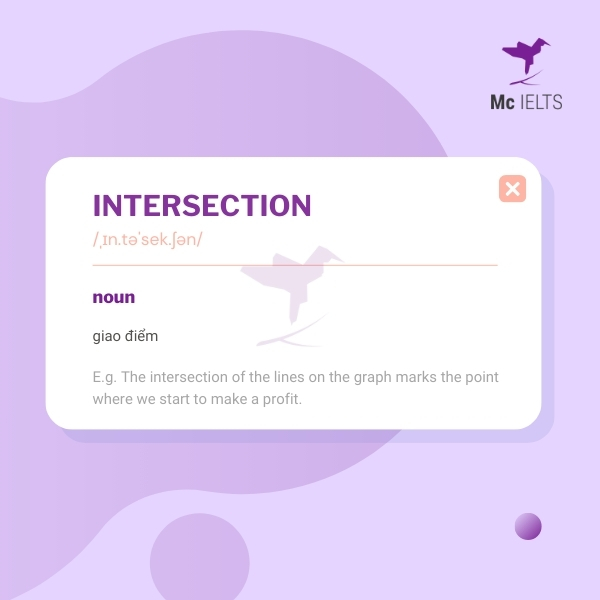
Why did you choose to study that major?
I chose to study data science because of its versatility and the growing demand for data-driven decision-making across industries. I’ve always enjoyed working with numbers and solving complex problems, so this major felt like a natural fit. Additionally, the potential to work in diverse fields, from healthcare to finance, was really appealing to me. The ability to make sense of data and turn it into actionable insights is both challenging and rewarding.
Từ vựng:
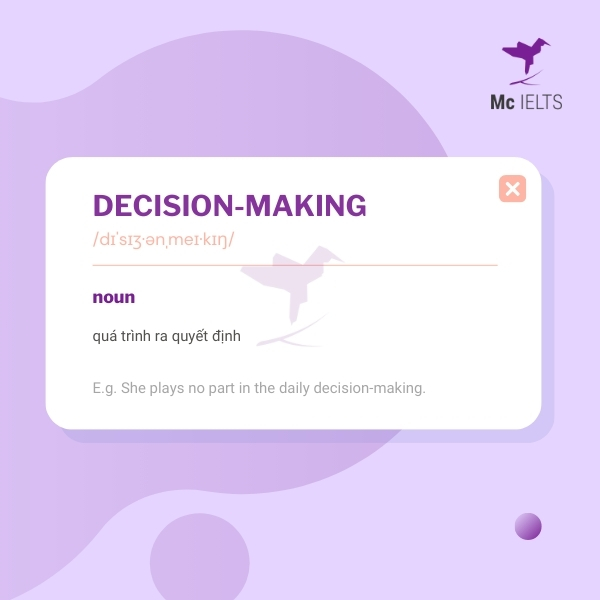
Do you like your major? (Why?/Why not?)
Yes, I really like my major. It’s intellectually stimulating and offers a perfect mix of theory and practical application. I enjoy the challenge of working with data and using it to solve real-world problems. Plus, the skills I’m acquiring are highly relevant and in demand, which makes it even more satisfying.
Từ vựng:
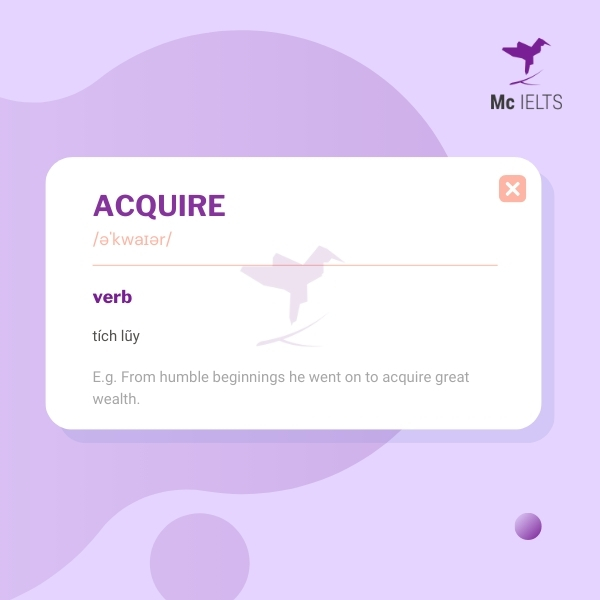
What was your favorite subject as a child?
My favorite subject as a child was math. I loved how everything in math had a clear logic to it, and solving problems felt like working on a puzzle. The satisfaction of finding the right answer was always very rewarding. It also helped that I had great teachers who made the subject interesting and engaging.
Từ vựng:
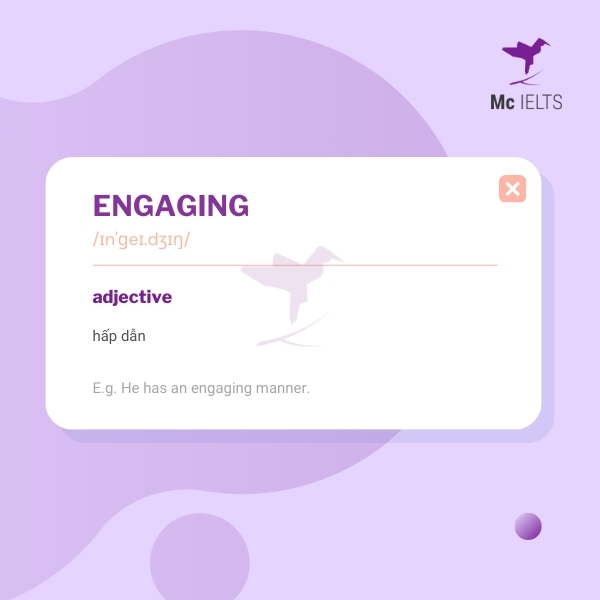
What kind of school did you go to as a child?
I went to a public school in the city. It was a large school with a diverse student body, which was great for learning about different cultures and perspectives. The school had good facilities, and I was lucky to have access to a variety of extracurricular activities. The environment was supportive, and I made some lifelong friends there.
Từ vựng:
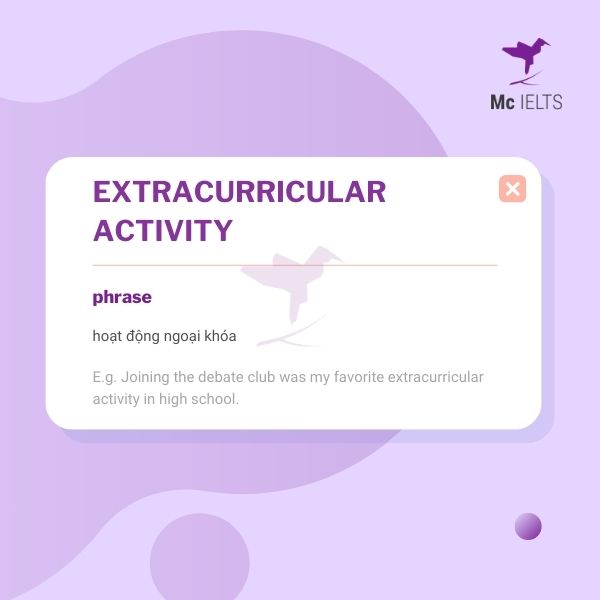
Do you think your country has an effective education system?
I think my country’s education system has its strengths but also some areas that need improvement. It offers a solid foundation in core subjects and a wide range of opportunities for higher education. However, there’s still work to be done in terms of accessibility and ensuring that all students receive a high-quality education regardless of their background. I believe more focus on practical skills and critical thinking could further enhance the system.
Từ vựng:
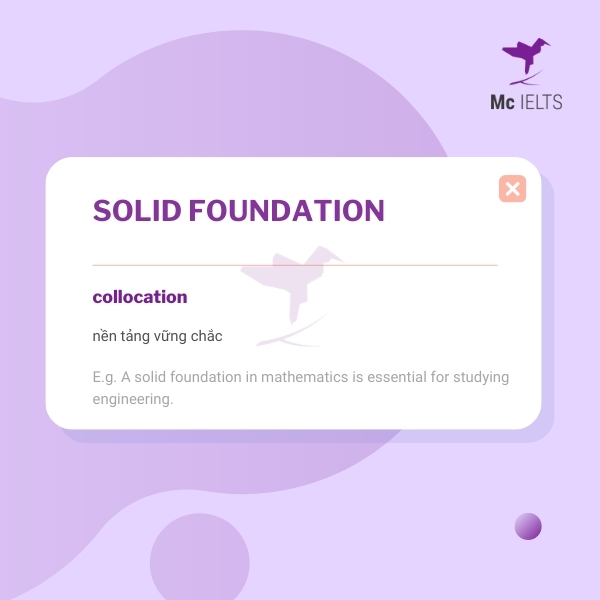
What do you dislike about your school?
One thing I dislike about my school is the lack of flexibility in the curriculum. Sometimes it feels like there’s too much emphasis on exams and not enough on creative or critical thinking. I also wish there were more opportunities for hands-on learning, like internships or project-based courses. That said, the overall experience has been positive, but there’s always room for improvement.
Từ vựng:
What part of university life do you like best?
I really enjoy the freedom and independence that comes with university life. Being able to manage my own time and make decisions about my studies and social life is empowering. I also love the diverse community and the opportunity to meet people from different backgrounds. The academic environment is stimulating, and there are endless opportunities to learn and grow outside of the classroom as well.
Từ vựng:
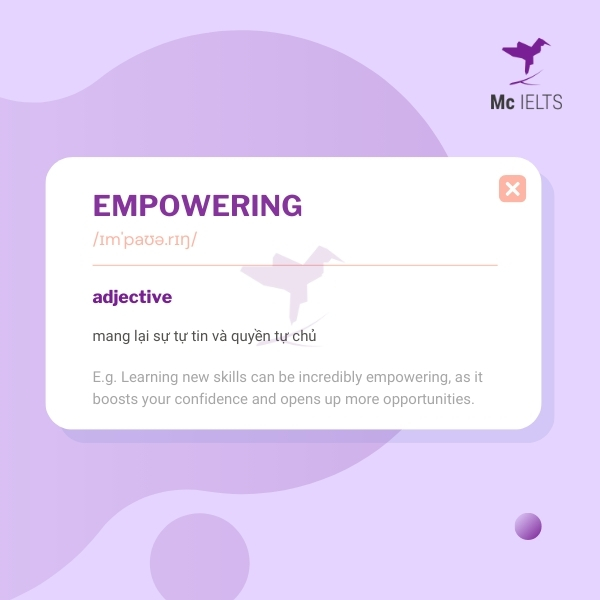
What technology do you use when you study?
When I study, I rely heavily on my laptop and various software tools. I use programming languages like Python and R for data analysis, and tools like Jupyter Notebooks for coding and visualization. Additionally, I often use online resources like academic databases and educational platforms to supplement my learning. My smartphone also helps me stay organized with apps for time management and note-taking.
Từ vựng:
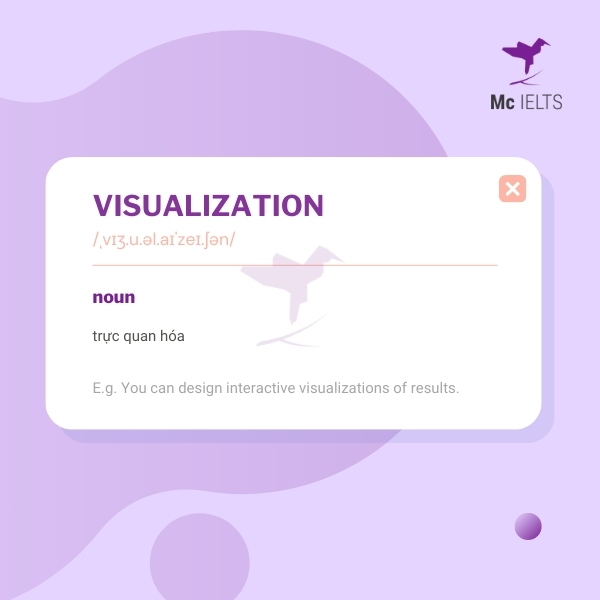
Do you plan to continue with your job in the future?
Yes, I plan to continue with my job in the future. Data science is a dynamic field with plenty of opportunities for growth and development. I’m looking forward to expanding my skills, taking on more complex projects, and potentially moving into a leadership role. The more I learn and contribute, the more I see myself building a long-term career in this area.
Từ vựng:
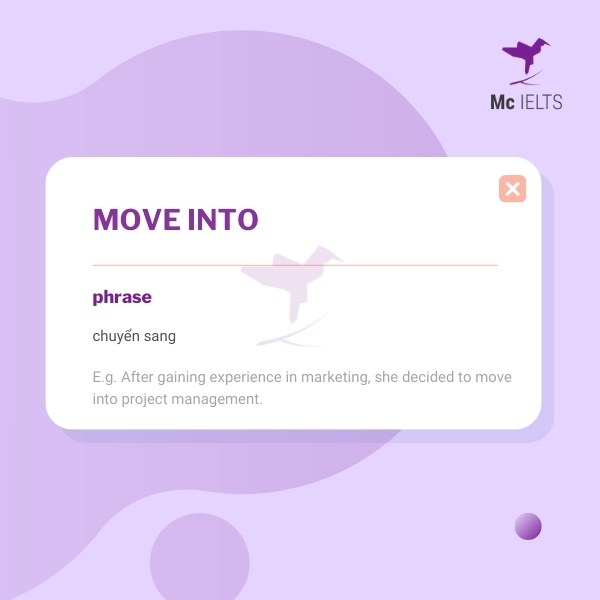
Do you have anything that you don’t like about your study?
One thing I don’t particularly like is the amount of time spent on theoretical concepts that don’t have direct real-world applications. While I understand the importance of theory, I sometimes wish there were more focus on practical, hands-on experiences. Also, balancing coursework with other responsibilities can be quite stressful at times. Despite these challenges, I still find the overall experience valuable.
Từ vựng:
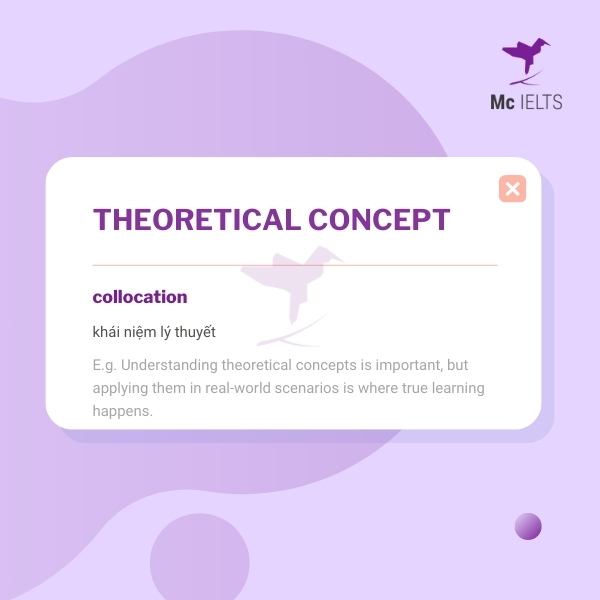
Do you prefer to study in the mornings or in the afternoons?
I prefer to study in the mornings. I find that I’m more alert and focused after a good night’s sleep, so I can get a lot done early in the day. Plus, studying in the morning frees up my afternoons and evenings for other activities or relaxation. It’s all about setting a productive tone for the rest of the day.
Từ vựng:
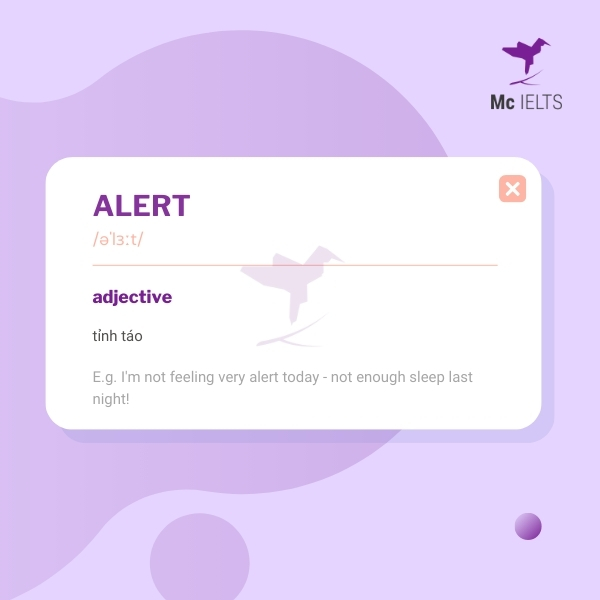
How much time do you spend studying every week?
On average, I spend about 20-25 hours studying each week. This includes attending lectures, completing assignments, and doing additional reading or practice. The exact amount of time varies depending on my workload and upcoming deadlines. I try to maintain a balanced schedule to avoid burnout while still keeping up with my studies.
Từ vựng:
How do you usually travel to the city where you study?
I usually travel to the city where I study by public transportation. The train is convenient and relatively quick, allowing me to avoid the hassle of traffic and parking. It’s also more environmentally friendly, which is important to me. The journey gives me some time to relax or catch up on reading before I start my day.
Từ vựng:
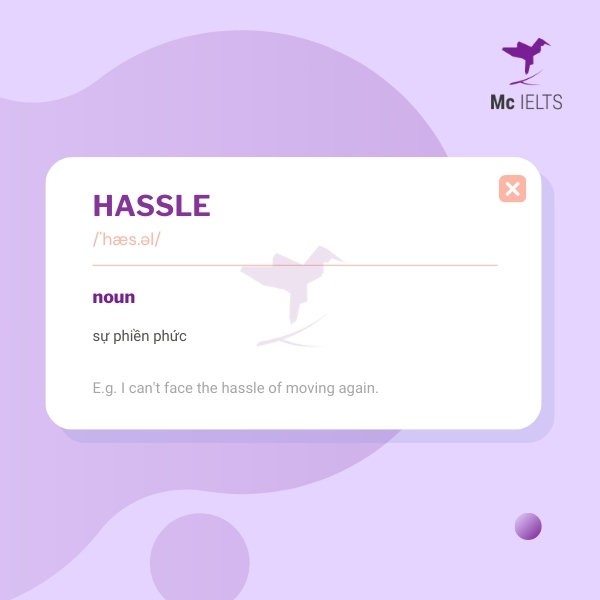
Do you study best in the morning or the afternoon? (Why?)
I study best in the morning. My mind is fresh, and I find it easier to concentrate without the distractions that tend to build up later in the day. Morning study sessions also help me feel accomplished early on, which motivates me for the rest of the day. Plus, getting difficult tasks done early leaves me more flexibility in the afternoon.
Từ vựng:
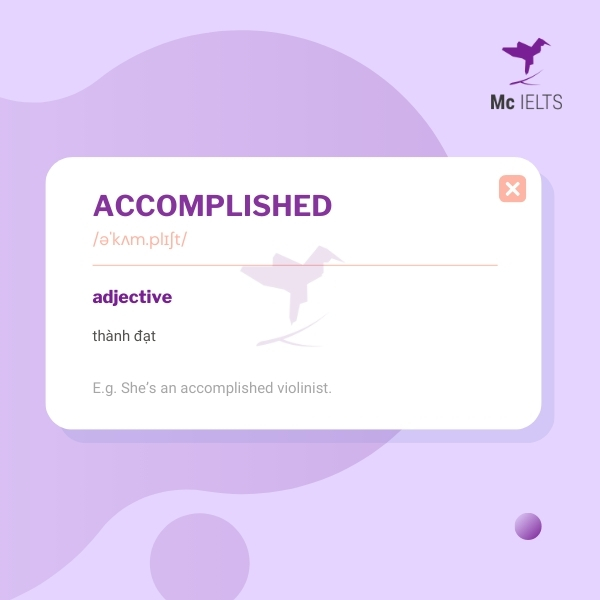
What is the educational system like in your country?
The educational system in my country is quite structured, with a strong emphasis on academic achievement and standardized testing. It provides a solid foundation in basic subjects, and there are plenty of opportunities for higher education and specialized training. However, some critics argue that the system can be too rigid and doesn’t always encourage creativity or critical thinking. Despite these challenges, the system has produced many successful professionals across various fields.
Từ vựng:
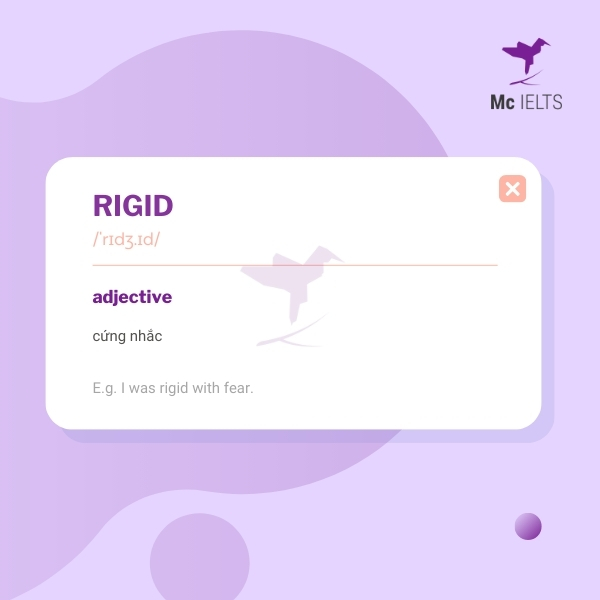
Do you have any plans for your studies in the next five years?
In the next five years, I plan to further specialize in data science, possibly pursuing a master’s degree or professional certifications. I’m also interested in gaining more practical experience through internships or industry projects. Additionally, I want to stay updated with the latest developments in AI and machine learning. My goal is to continuously improve my skills and knowledge to advance in my career.
Từ vựng:
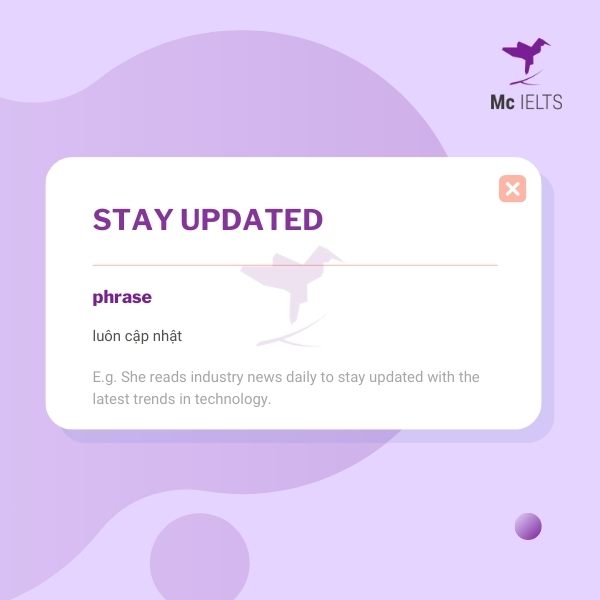
What are the benefits of being your age?
One of the benefits of being my age is the flexibility and freedom to explore different paths in life. I have the energy and time to try new things, take risks, and learn from experiences. It’s also a time when I’m building my career and personal life, so there’s a lot of excitement and potential for growth. Additionally, being surrounded by a network of peers who are going through similar experiences is both comforting and motivating.
Từ vựng:
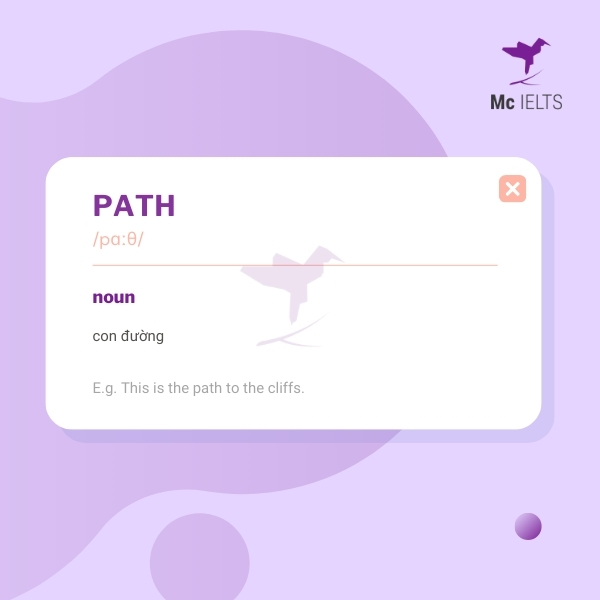
What technology do you use when you study?
When I study, I primarily use my laptop for research, coding, and accessing online resources. I also use productivity apps on my smartphone to manage my schedule and tasks. For note-taking, I prefer digital tools like OneNote or Evernote, which allow me to organize and access my notes easily. Additionally, I sometimes use tablets for reading and annotating academic papers.
Từ vựng:
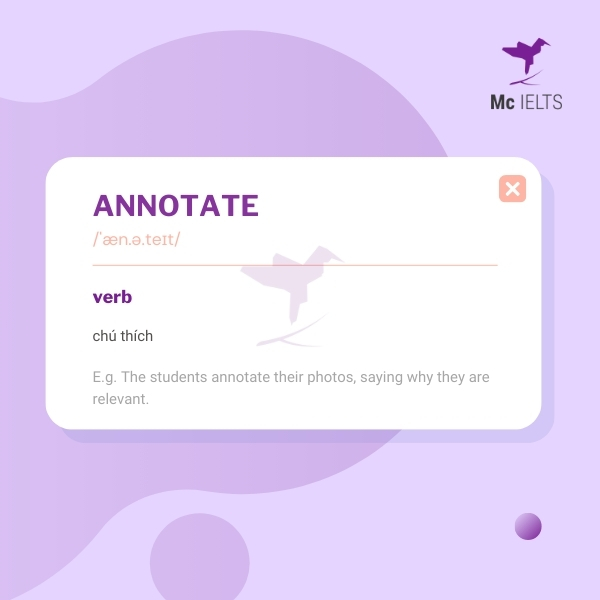
Ý tưởng trả lời Speaking Part 2 Study
Bạn đã bao giờ tự hỏi làm thế nào để biến một chủ đề tưởng chừng như quen thuộc như Study thành một câu chuyện thú vị trong IELTS Speaking Part 2? Làm sao để kể về một trải nghiệm học tập đáng nhớ hoặc một khóa học bạn yêu thích mà vẫn giữ được sự tự nhiên và cuốn hút? Trong phần này, chúng ta sẽ khám phá những ý tưởng sáng tạo để bạn có thể xây dựng một bài nói IELTS Speaking Topic Study Part 2 mạch lạc, đầy cảm hứng và chắc chắn sẽ ghi điểm cao với giám khảo. Hãy cùng tìm hiểu và vận dụng hiệu quả vào quá trình học Speaking IELTS Online để chuẩn bị thật tốt cho phần thi này nhé!
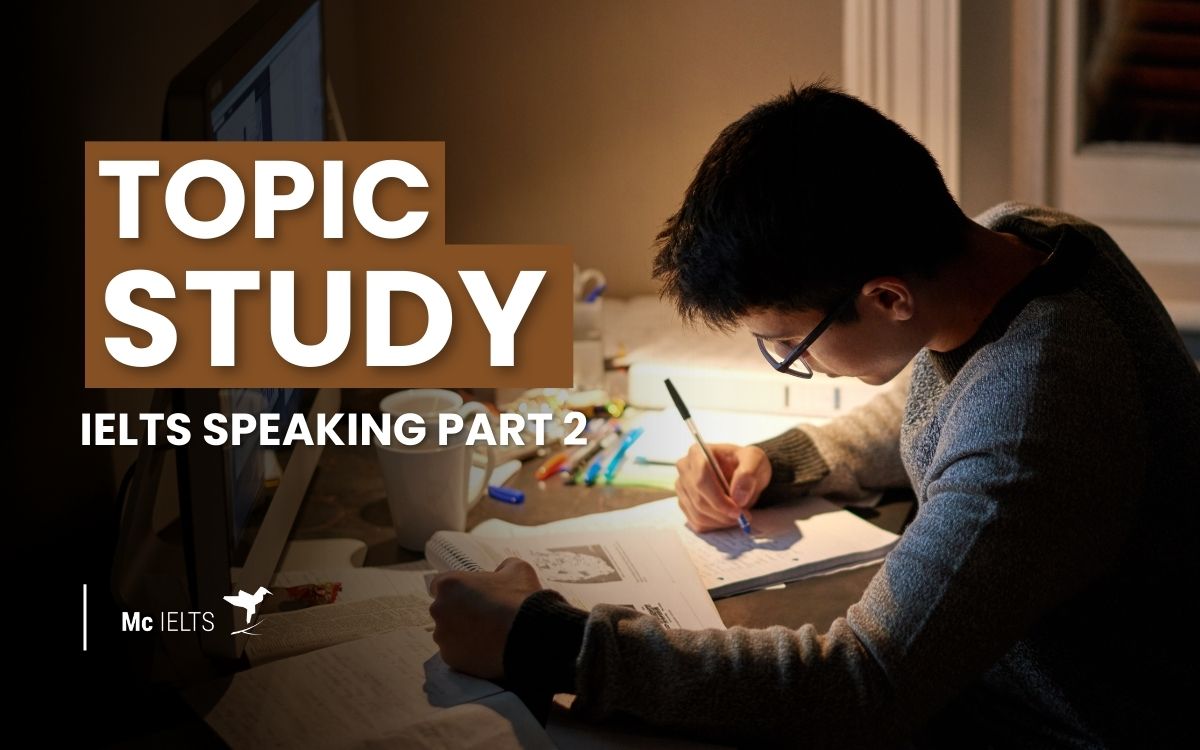
Sample answer topic IELTS Speaking about Study Part 2
Question: Describe your favorite subject at school.
I’d like to talk about my favorite subject in school, which is Math. Math has always been a subject that I’ve been drawn to, and it’s one that I find both challenging and rewarding.
Firstly, what I love about Math is its logical nature. There’s a certain clarity and precision in Math that I really appreciate. Every problem has a solution, and it’s incredibly satisfying to work through a difficult equation and arrive at the correct answer. The process of solving problems, step by step, appeals to my sense of order and structure.
Moreover, Math isn’t just about numbers; it’s about thinking critically and analytically. I’ve found that the skills I’ve developed in Math, like problem-solving and logical reasoning, are applicable in many other areas of life. For example, when faced with a complex situation, I often break it down into smaller parts, much like how I would approach a mathematical problem. This approach has helped me make better decisions and solve issues more effectively.
In addition, I’ve had some great teachers who made Math even more enjoyable. They presented concepts in a way that was easy to understand and encouraged us to see the beauty in the subject. Their passion for Math was contagious, and it inspired me to dig deeper and challenge myself.
One of my favorite topics in Math is calculus. I love how it allows us to understand changes and motion, concepts that are so fundamental to the world around us. Whether it’s calculating the rate at which something is growing or understanding the curves of a graph, calculus brings a new level of understanding to real-world phenomena.
In conclusion, Math is my favorite subject because it’s logical, applicable, and intellectually stimulating. It has helped me develop important skills and given me a deeper appreciation for the order and patterns in the world around us.
Từ vựng:
Ý tưởng trả lời Speaking Part 3 Study
Bạn đã bao giờ nghĩ đến cách làm cho phần thảo luận về IELTS Speaking about Study Part 3 trở nên sâu sắc và ấn tượng hơn? Đây là cơ hội để bạn không chỉ nêu lên quan điểm cá nhân mà còn thể hiện khả năng phân tích và suy nghĩ chín chắn về các vấn đề giáo dục. Vậy làm sao để bạn có thể trình bày những ý tưởng một cách logic, mạch lạc và thuyết phục? Trong phần này, chúng ta sẽ khám phá những ý tưởng độc đáo để giúp bạn tỏa sáng trong phần thi quan trọng này. Hãy cùng tìm hiểu và áp dụng ngay những lập luận sắc bén vào quá trình học IELTS nhé!
What makes a good student?
A good student is someone who’s curious and eager to learn, always asking questions and seeking to understand more deeply. They’re also disciplined, consistently doing their homework and managing their time well. Beyond just academics, a good student is respectful and engages actively in class, contributing to discussions and helping their peers. Lastly, they’re resilient, able to bounce back from setbacks and stay motivated even when things get tough.
Từ vựng:
What role should the teacher have in the classroom?
The teacher’s role in the classroom is to be a guide and a facilitator of learning. They should create an environment where students feel safe to express their ideas and take intellectual risks. Teachers should also be motivators, inspiring students to push their boundaries and explore new concepts. Additionally, they need to be mentors, offering support and feedback that helps students grow both academically and personally.
Từ vựng:
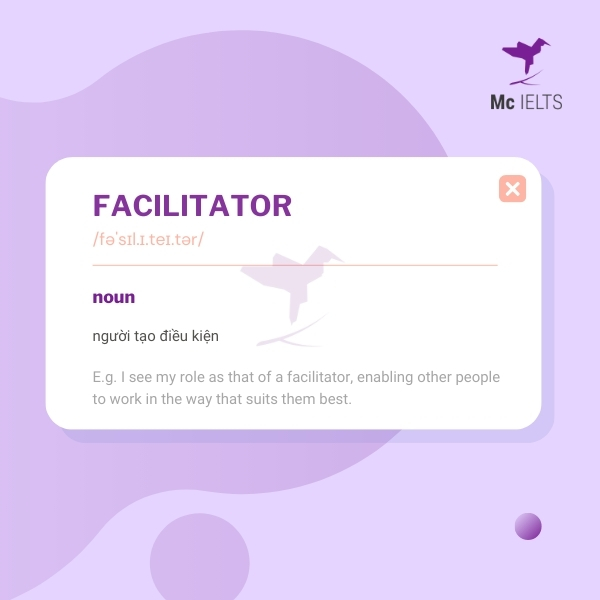
How has teaching changed in your country in the last few decades?
Teaching has changed quite a bit over the last few decades, with a shift from rote learning to more interactive and student-centered approaches. Technology has played a huge role, with tools like smartboards, online resources, and digital classrooms becoming common. There’s also been a greater focus on critical thinking and problem-solving skills rather than just memorizing facts. Moreover, teachers are now more likely to act as facilitators, guiding students to find information and develop their own insights.
Từ vựng:
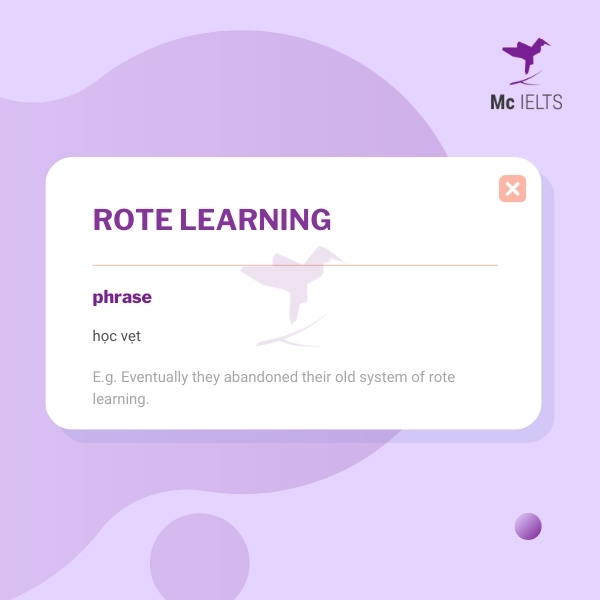
What is the difference between the way children learn and the way adults learn?
Children often learn through play and exploration, picking up new skills naturally as they interact with the world around them. They tend to absorb information quickly and are more open to new ideas, often learning through repetition and imitation. Adults, on the other hand, learn more through experience and application, needing to see the relevance of what they’re learning to their lives or work. Adults also tend to be more self-directed in their learning, often seeking out information on their own to solve specific problems or achieve personal goals.
Từ vựng:
Từ vựng thường gặp trong topic IELTS Speaking about Study
Khi nói về topic Study trong IELTS Speaking, từ vựng được xem là chìa khóa giúp bạn diễn đạt ý tưởng một cách rõ ràng và ấn tượng. Nhưng làm sao để lựa chọn từ ngữ phù hợp để miêu tả quá trình học tập, thảo luận về hệ thống giáo dục, hay chia sẻ về phương pháp học hiệu quả? Phần dưới đây sẽ giới thiệu những từ vựng Study IELTS Speaking Part 1, 2, 3 thường gặp và cần thiết nhất, giúp bạn làm giàu thêm vốn từ và tự tin hơn khi đối diện với chủ đề này. Hãy áp dụng tốt vào quá trình luyện thi IELTS trực tuyến và làm chủ từ vựng của bạn!
| STT | Từ vựng | Ý nghĩa | Ví dụ |
|---|---|---|---|
| 1 | Literate and well-informed electorate | Cử tri có học và có trình độ văn hóa cao | A literate and well-informed electorate is crucial for a functioning democracy. |
| 2 | Socialization of education | Xã hội hóa giáo dục | The socialization of education aims to make learning accessible to everyone. |
| 3 | Gain in-depth knowledge | Có được kiến thức sâu sắc | Through research, she managed to gain in-depth knowledge on the subject. |
| 4 | Credit mania | Bệnh thành tích | Some students suffer from credit mania, focusing only on grades. |
| 5 | Extracurricular activities | Hoạt động ngoại khóa | Participation in extracurricular activities enhances a student’s experience. |
| 6 | Professional development | Phát triển chuyên môn | Attending workshops aids in professional development. |
| 7 | Rote learning | Học vẹt | Relying on rote learning can limit critical thinking skills. |
| 8 | Self-reliance | Tự dựa vào sức mình | She values self-reliance over seeking constant help. |
| 9 | Completion certificate | Bằng, chứng chỉ | He received a completion certificate after the course. |
| 10 | Plagiarism | Đạo văn | Universities have strict rules against plagiarism. |
| 11 | Cutting-edge | Công nghệ tiên tiến | The company invested in cutting-edge solutions. |
| 12 | Circadian rhythms | Nhãn sinh học 24 giờ | Maintaining circadian rhythms is vital for health. |
| 13 | Pique | Kích thích sự quan tâm | The new product piqued consumer interest. |
| 14 | Keen | Rất hứng thú | She is keen to start her new project. |
| 15 | Breeze (through) | Dễ dàng vượt qua | They breezed through the exam with little effort. |
| 16 | A piece of cake | Rất dễ | Solving the puzzle was a piece of cake for him. |
| 17 | Have a knack for | Có năng khiếu | She has a knack for solving complex problems. |
| 18 | Day in, day out | Liên tục trong thời gian dài | He exercises day in, day out without fail. |
| 19 | Most sought after | Được săn đón nhiều nhất | The designer is most sought after for her unique style. |
| 20 | Ecstatic | Vui mừng khôn xiết | She was ecstatic about her promotion. |
| 21 | Senior | Sinh viên năm cuối | The senior class is preparing for graduation. |
| 22 | Top-notch | Tuyệt vời, đỉnh cao | The restaurant is known for its top-notch service. |
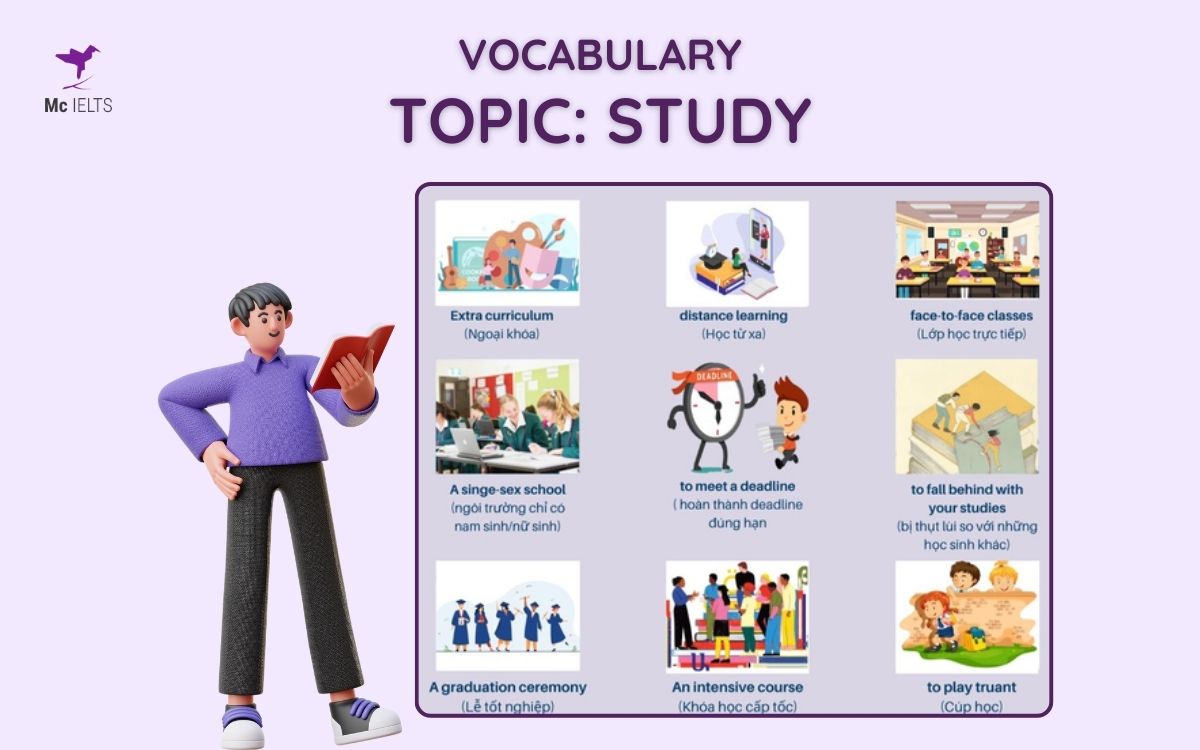
Vocabulary thông dụng trong chủ đề IELTS Speaking about Study
Gợi ý các cấu trúc ghi điểm IELTS Speaking Topic Study
Để ghi điểm cao khi nói về chủ đề IELTS Speaking Topic Study, việc sử dụng các cấu trúc câu chính xác và linh hoạt là vô cùng quan trọng. Nhưng làm sao để chọn đúng cấu trúc giúp bạn diễn đạt ý tưởng một cách mạch lạc và ấn tượng? Phần dưới đây sẽ gợi ý những cấu trúc câu hiệu quả, giúp bạn diễn đạt bài nói của mình một cách logic và thu hút hơn. Hãy cùng khám phá những cách diễn đạt thông minh vào lộ trình luyện thi IELTS để khiến phần thi của bạn trở nên nổi bật!
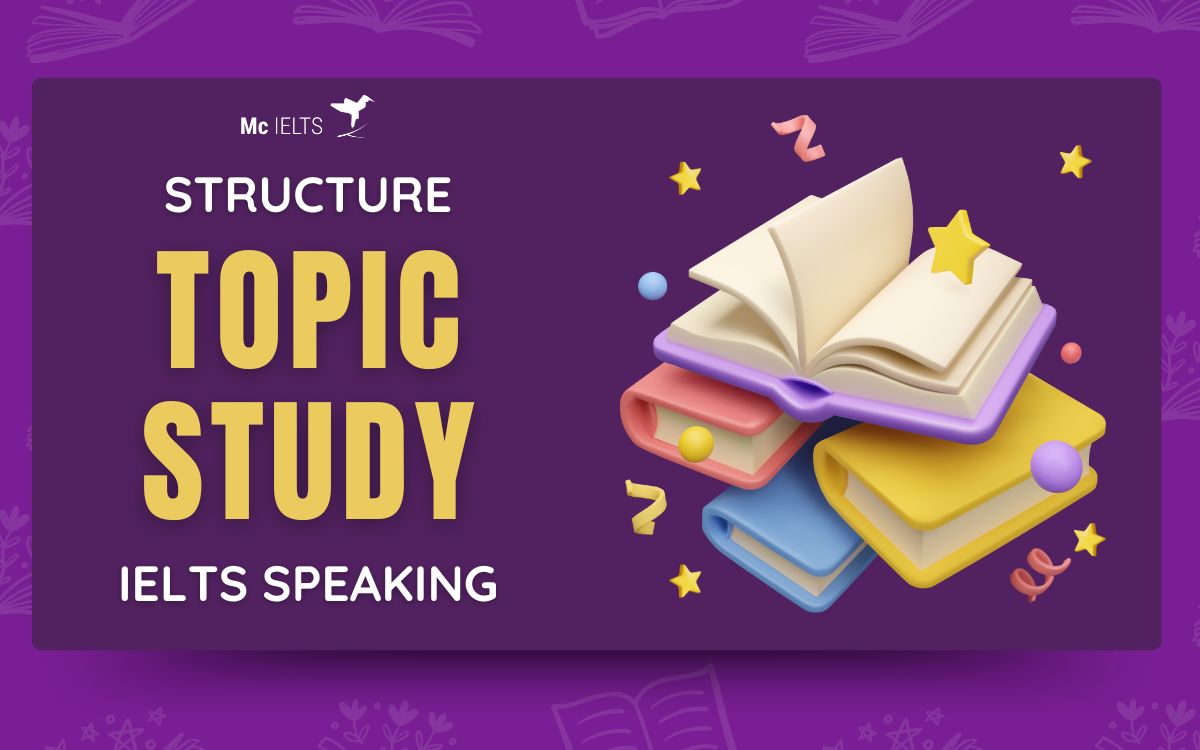
Cấu trúc “ăn điểm” khi gặp IELTS Speaking Topic Study
Cấu trúc IELTS Speaking about Study theo chiều hướng tích cực
| STT | Từ vựng | Ý nghĩa |
|---|---|---|
| 1 | It helps me to develop my imagination and creativity | Giúp tôi phát triển trí tưởng tượng và sáng tạo |
| 2 | Gives you the opportunity to experience a different way of living | Mang đến cơ hội trải nghiệm cách sống khác |
| 3 | Chance to improve your speaking skills | Cơ hội cải thiện kỹ năng nói |
| 4 | Chase to try to obtain or achieve something | Theo đuổi để đạt được điều gì đó |
| 5 | Grow fond of | Dần dần thích… |
| 6 | I really enjoy my study program because… | Tôi rất thích chương trình học bởi vì… |
| 7 | To pull one’s socks up | Nhớ về việc gì đã xảy ra ở quá khứ |
| 8 | Have a passion for | Có đam mê với điều gì |
Cấu trúc IELTS Speaking Topic Study theo chiều hướng tiêu cực
| STT | Từ vựng | Ý nghĩa |
|---|---|---|
| 1 | I had to reserve study results for … year due to personal reasons | Tôi phải bảo lưu … năm vì lý do cá nhân |
| 2 | To go blank | Trở nên trống rỗng do sự kiện bất ngờ hoặc khó xử |
| 3 | Not stand a chance of doing something | Không có khả năng đạt được điều gì |
| 4 | To miss out something | Không làm hoặc bỏ lỡ điều gì |
| 5 | Lose touch with | Mất liên lạc hoặc kết nối với ai đó |
| 6 | Burn the midnight oil | Thức đêm học bài |
| 7 | There is little chance for | Hầu như không có cơ hội cho… |
Nâng cao trình độ Speaking cùng cựu giám khảo IELTS tại Mc IELTS
Bạn có từng cảm thấy bế tắc trong việc nâng cao điểm Speaking IELTS, dù đã cố gắng rất nhiều? Bạn có tự hỏi điều gì thực sự cần thiết để chinh phục những tiêu chí khắt khe của giám khảo? Tại Trung tâm luyện IELTS tốt TPHCM Mc IELTS, chúng tôi mang đến cho bạn cơ hội học tập trực tiếp với các CỰU GIÁM KHẢO IELTS – những người hiểu rõ từng yêu cầu của kỳ thi và biết cách giúp bạn cải thiện nhanh chóng và hiệu quả.
Những lợi ích đặc biệt khi bạn đăng ký học tại Mc IELTS:
- 6 buổi học IELTS 1 kèm 1 hàng tuần miễn phí: Được hỗ trợ trực tiếp từ cố vấn học tập để giải đáp mọi thắc mắc và luyện tập thêm.
- Cam kết học lại miễn phí: Nếu không đạt điểm yêu cầu, bạn có thể học lại mà không mất thêm chi phí (liên hệ để biết thêm chi tiết).
- Tham gia nhóm học trực tuyến: Trò chuyện và nhận sự hỗ trợ từ cựu giám khảo IELTS trong cộng đồng học tập trên Facebook.
- Kho tài liệu luyện thi IELTS đa dạng: Hơn 50 đầu sách IELTS Online có sẵn để giúp bạn ôn luyện hiệu quả.
- Hỗ trợ học bù và bảo lưu: Giúp bạn học tập một cách linh hoạt và không bị gián đoạn.
Mc IELTS tự hào về chất lượng giảng dạy của mình, điều này được thể hiện qua hơn 1000 đánh giá xuất sắc từ học viên:
- Đánh giá 4.9/5.0 trên Facebook (Xem tại đây)
- Đánh giá 4.9/5.0 trên Google (Xem tại đây)
- Đánh giá 9.2/10 trên Edu2review (Xem tại đây)

Đánh giá tích cực của đông đảo cựu học viên
Hiện tại, Mc IELTS còn triển khai chương trình sửa bài Writing và Speaking miễn phí trong nhóm Facebook Học IELTS cùng cựu giám khảo. Đây là cơ hội tuyệt vời để bạn nhận phản hồi chi tiết và nâng cao kỹ năng của mình một cách hiệu quả.
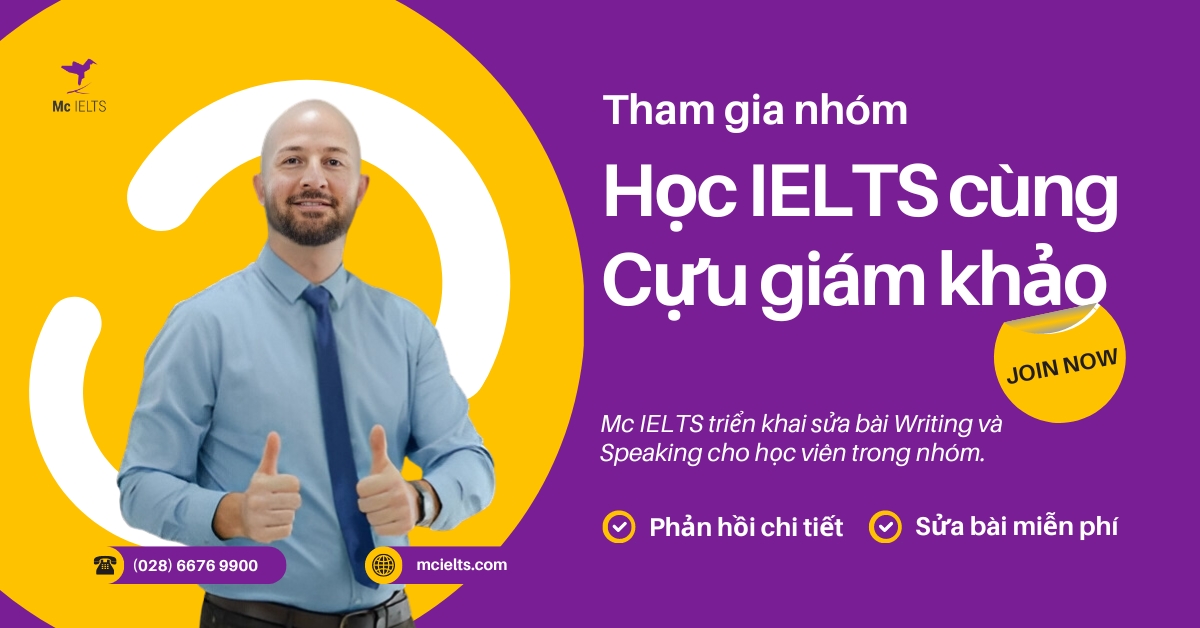
Tham gia nhóm Facebook của Mc IELTS để được cựu giám khảo chấm chữa bài Speaking và Writing hoàn toàn miễn phí
Hy vọng rằng những bài mẫu và từ vựng trong bài viết này đã tiếp thêm cho bạn sự tự tin và cảm hứng để chinh phục chủ đề Speaking Part 1 Study. Nếu bạn đang tìm kiếm cách nâng cao kỹ năng nói và đạt được điểm số ấn tượng thật nhanh chóng, Trung tâm luyện thi IELTS cấp tốc TPHCM Mc IELTS chính là nơi giúp bạn biến mục tiêu thành hiện thực. Với sự hướng dẫn từ các chuyên gia giàu kinh nghiệm và lộ trình học tập cá nhân hóa, bạn sẽ sẵn sàng tỏa sáng trong kỳ thi. Đừng chần chừ, hãy ĐĂNG KÝ NGAY và bắt đầu hành trình chinh phục IELTS cùng Mc IELTS!
Nhận lộ trình IELTS TỐI ƯU theo yêu cầu




